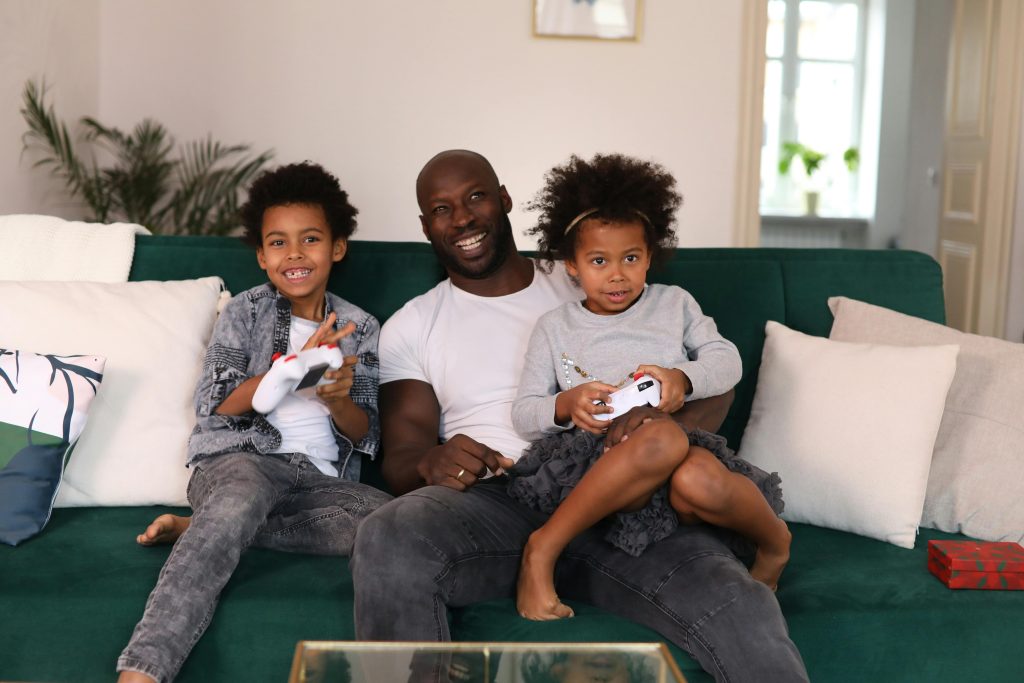color: #ea404d;
text-decoration: none;
}
.redcircle-link:hover {
color: #ea404d;
}
.redcircle-link:active {
color: #ea404d;
}
.redcircle-link:visited {
color: #ea404d;
}
Powered by RedCircle
Child psychologist Emily Edlynn says a healthier approach to tech is good for the whole family.
As she wrote in her Substack newsletter, the currently popular shame-blame-restrict approach to social media, screens, and gaming isn’t working particularly well. Emily sas:
Parents’ hyper-focus on screen time, gaming, or phones can have more negative effects than the technologies on their own. Parents can become so fixated on maintaining the limits that the fixation itself causes a child’s or teen’s frustration and subsequent distancing from their parents.
Social Media, Video Games, & Phones Aren’t the Cause of Mental Health Problems
Contrary to popular belief, smartphone and screens are not solely responsible for the current mental health crisis.
“I’m always skeptical is there’s a straight line drawn from any one thing to mental health,” Emily says. “That’s not how mental health works. It’s very complex, nuanced, layered, and full of contributing factors.” In fact, tech overuse can be a symptom, not a cause of mental health problems.
“It’s really important not to blame the tech but to get under it & explore what’s going on,” Emily says.
So, parents: take a breath. Giving your child a smartphone does not doom them to anxiety or depression. It is much healthier to step away from the fear and approach technology as a tool.
“When parents take more of a mentorship approach to online activity and social media, the kids do better with it,” Emily says.
Fighting About Tech Isn’t Helpful. Here’s a Healthier Approach to Tech.
Parents and children often have vastly different views of (& goals for) technology. These differing views often come into conflict. And in many cases, that escalates into a problem.
“The conflict around technology can cause more harm than the technology itself,” Emily explains. Kids may feel misunderstood, alienated, and not trusted. And parental guilt and stress around technology is harming both parents & kids.
Although it may not seem like it during the tween & teenage years, our kids want to be connected with us. When they don’t feel connected to us due to high and constant conflict, they suffer (often, in ways we can’t see).
Focus on the connection with your child instead of focusing on the tech.

Takeaways:
- Parents should focus on balance and individualized approaches to technology use rather than blaming technology for mental health issues.
- Open dialogue and empathy are key in discussing technology use with children and teenagers.
- Technology can be addictive, and it is important to develop critical thinking skills and awareness of its impact.
- The goal is to raise children who have a good internal sense of balance and can make healthy choices in the digital world.
Links we mentioned (or should have) in this episode:
Autonomy-Supportive Parenting: Reduce Parental Burnout and Raise Competent, Confident Children, by Emily Edlynn
www.emilyedlynnphd.com — Emily’s website
The Art & Science of Mom — Emily’s Substack (Be sure to check out Fortnite Creep)
Fortnite is Not a Waste of Time — Building Boys post
Autonomy-Supportive Parenting — ON BOYS episode featuring Emily
How Our Feelings About Technology Affect Our Kids — newsletter by Melinda Wenner-Moyer (mentioned by Emily)
Melinda Wenner Moyer: Raising Boys Who Aren’t Assholes — ON BOYS episode
Sponsor Spotlight: Armoire
Clothing rental subscription that makes getting dressed easier. Visit armoire.style/ONBOYS to get up to 50% OFF your first month.
